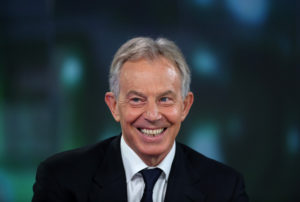As Labour gather in Liverpool, in an attempt to regain some moral credibility after a dire first few months in power, a storm is gathering on Starmer’s Left. For now it lacks the media spotlight of donor-funded birthday parties and New York city breaks, but its political implications could ultimately prove greater. At its helm is the man Starmer sought to discard like a piece of rubbish: Jeremy Corbyn.
Rishi Sunak surprised almost everyone by calling a snap election in May, including the former Labour leader — who remained a party member but had lost the party whip in 2020. It was clear he would never be permitted to stand for Labour again, but as Sunak stood outside No. 10 — resembling a bedraggled school prefect — Corbyn moved quickly. Two days later he announced he would run as an independent. The party he first joined in 1965 was firmly in his sights.
For many, the move against Corbyn several years earlier was primarily driven by the desire to break with his socialist politics. Indeed, it was the first in a series of moves that the leadership undertook to defang the party’s Left. Later came top-down deselections of Faiza Shaheen and Lloyd Russell-Moyle, while Sam Tarry lost a close vote with the controversial “Anonyvoter” system being deployed. And yet, in the election itself, confounding historical precedent, Corbyn – as an independent – retained his seat. The battle for Labour, and the future of the British Left, had begun.
Expelled from the party, and outside the tent, Corbyn is arguably more trouble for Starmer. He now sits under his own flag, alongside four other outsiders propelled to Parliament by their opposition to austerity and trenchant criticism of Israel’s war in Gaza. And while their election campaigns weren’t coordinated, these five independents are now getting organised, announcing a formal Independent Alliance earlier this month. That makes them the fifth largest grouping in Westminster. Alongside four Green members, moreover, theirs is the largest gathering of “Left of Labour” MPs in history. What was initially an inchoate rejection of Starmer across a grab-bag of seats is becoming a national movement.
Worse still for Labour, this all began during what was supposed to be the pinnacle of Starmer’s appeal. Yet within three months of forming a government, one recent poll has Labour as low as 29%. Six-in-ten voters now say the Prime Minister can’t be trusted and, most remarkably of all, Starmer is less popular than Rishi Sunak.
Not that the Conservatives will benefit from Labour’s deepening woes. Despite his penchant for freebie designer glasses, the public still views Starmer more favourably than leader wannabes Kemi Badenoch, Robert Jenrick and James Cleverly. More broadly, the electorate remains more critical of the Tories than Labour. All those years of ineptitude haven’t been forgotten overnight.
And it is that presumption — that winning consists of being the “least worst” option — which perhaps explains the decision to cut the Winter Fuel Allowance for 10 million pensioners. In a two-party system, all that matters is being slightly less despised than the other guys. But Britain is no longer a two-party system, something Labour ignores at its peril. With the Lib Dems, the country now has its largest third party for a century — business has even started paying attention to them — and the SNP are looking to hit back under stable leadership. Elsewhere, the Greens and Reform are now truly national players. It wasn’t just Carla Denyer saying Labour should scrap the two-child benefit cap, but Nigel Farage too. Despite having more than 400 seats, the optics are that Labour is not only at odds with the country, but that electoral alternatives are increasingly conspicuous.
Yet the biggest problem for Starmer arguably remains his former comrade in Islington North, with Corbyn and his fellow independents a lightning rod for what was the Labour Left. The potential repercussions of his zero-tolerance approach on dissent can already be seen. Last month, Labour suspended seven MPs after they voted in favour of an SNP amendment to scrap the two-child benefit cap. A day later, Corbyn and his band of merry men signed a joint letter in support of those rebels, saying they looked forward to working together — and that they represented an alternative to the two establishment parties. The subtext was obvious: leave Labour and sit with us.
But as Starmer’s difficult inheritance becomes clearer, there will be increasing dissent within the party as to how he approaches various challenges. Those who disagree with the party line are already considering other options — including the Independent Alliance. In August, Labour announced its membership had fallen below 400,000 for the first time in a decade. For the party’s Right — anti-democratic fixers by disposition — that is considered a good thing. But many of those leaving will go elsewhere and campaign against the red rose. In Chingford, Faiza Shaheen, whose independent campaign denied Labour the seat in July — it was held by the Tory incumbent, Iain Duncan Smith — has several hundred supporters who have left the party with her. If Shaheen chooses to stand at the next general election that could matter.
For socialist MPs in parliament, subject to intimidation from the party machine, joining the Independent Alliance is less risky than it might sound. For those seven suspended MP’s, for example, the choice is not between standing with either Corbyn or Starmer at the next election — but being an MP at all. In all likelihood, if they continue to rebel, the Prime Minister and his retinue will use the same tactics they deployed against Shaheen earlier this year, and failed using against Diane Abbott: as soon as an election is called, their candidacy will be revoked by the party’s NEC. The sensible solution — from a purely self-interested perspective — is for those such as John McDonnell and Zarah Sultana to assume they’ll never be allowed to stand under the Labour banner again. As that becomes clearer expect them to sit alongside Corbyn.
A wider recognition of Starmer’s authoritarian style among Labour MPs will test his disciplinary approach. Rosie Duffield, hardly on the party’s Left, has already said she owes more to her constituents than the PM. This is dangerous ground for Starmer, who needs his big majority if he wants to address difficult challenges like the housing crisis. Some will stand up to Starmer — playing a game of political chicken in the knowledge there is an alternative with Corbyn. Meanwhile other, less courageous MPs, will pretend that abstention is somehow an act of defiance (more than 50 Labour MPs abstained on the Winter Fuel Allowance Bill). But that will prove bad politics — with a poor voting record manna for independent challengers at the next general election. Had Jess Philips not defied the party whip on calling for a ceasefire, for instance, she would most probably have lost her seat.
My bet is that a new party won’t happen, even with Corbyn open to the possibility. The strength of the five independents is that they are masters of what they don’t say: their platform of opposition to war, support for public services and criticism of Israel is overwhelmingly popular with the median Labour voter. Having a more detailed programme, where they’re liable to disagree among themselves over things such as LTNs or biodiversity, comes with too many downsides. An expanded alliance of independents at the next General Election — which does politics in the broadest of strokes — makes the most sense for now.
While covering the Batley and Spen by-election in 2021, I had the chance to meet some of Batley’s business families (the Yorkshire town is the cornerstone of the nation’s bed-making industry). Even then, it was clear that a generational shift was happening, especially in Muslim communities. “Our grandfathers voted Labour, but now we are saying it doesn’t have to be like that,” one told me. ”We want to shape things.” These are precisely the kinds of thick associational networks that powered independent candidates like Shockat Adam and Adnan Hussain to victory in Leicester South and Blackburn respectively. Because they are outside the M25, and don’t make sense through the prism of two-party politics, Westminster presumes they don’t matter. But soon they may have to sit up and notice.
Next year’s May elections will primarily focus on Tory-held county councils, so expect the Lib Dems, Greens and Reform to flourish. But elections in 2026, especially in Birmingham and London, could be a flashpoint for Starmer. As the Greens demonstrated before their success earlier this year, building power in councils is an effective first step to winning at Westminster. Wes Streeting and Jess Philips will be paying close attention.
This year, Labour’s victory wasn’t as definitive as it should have been. Their mandate was achieved with only 33.5% of the vote. Five years from now, they could still win a decent majority, albeit on an even smaller share of the vote. But to their Left there could be dozens of coordinated independents and Green Party MPs. As the contours of national politics shift, such figures could yet prove as influential as Reform, whether that is peeling off angry voters on issues such as corporate pay, inequality and cuts to the welfare state, or more potentially Tory-coded issues such as failing to clean up Britain’s rivers and coastlines.
For the first time in its history, the Labour Party is exposed on its Left, as well as its Right. This resets the parameters for what “centrism” actually means — a significant shift given the absence of a compelling orthodoxy at present. The Tory majority of 2019 proved to be volatile, and fleeting. And with Corbyn and his awkward squad snapping at its heels, come the next election, Labour may find itself in a similar position.
Disclaimer
Some of the posts we share are controversial and we do not necessarily agree with them in the whole extend. Sometimes we agree with the content or part of it but we do not agree with the narration or language. Nevertheless we find them somehow interesting, valuable and/or informative or we share them, because we strongly believe in freedom of speech, free press and journalism. We strongly encourage you to have a critical approach to all the content, do your own research and analysis to build your own opinion.
We would be glad to have your feedback.
Source: UnHerd Read the original article here: https://unherd.com/



